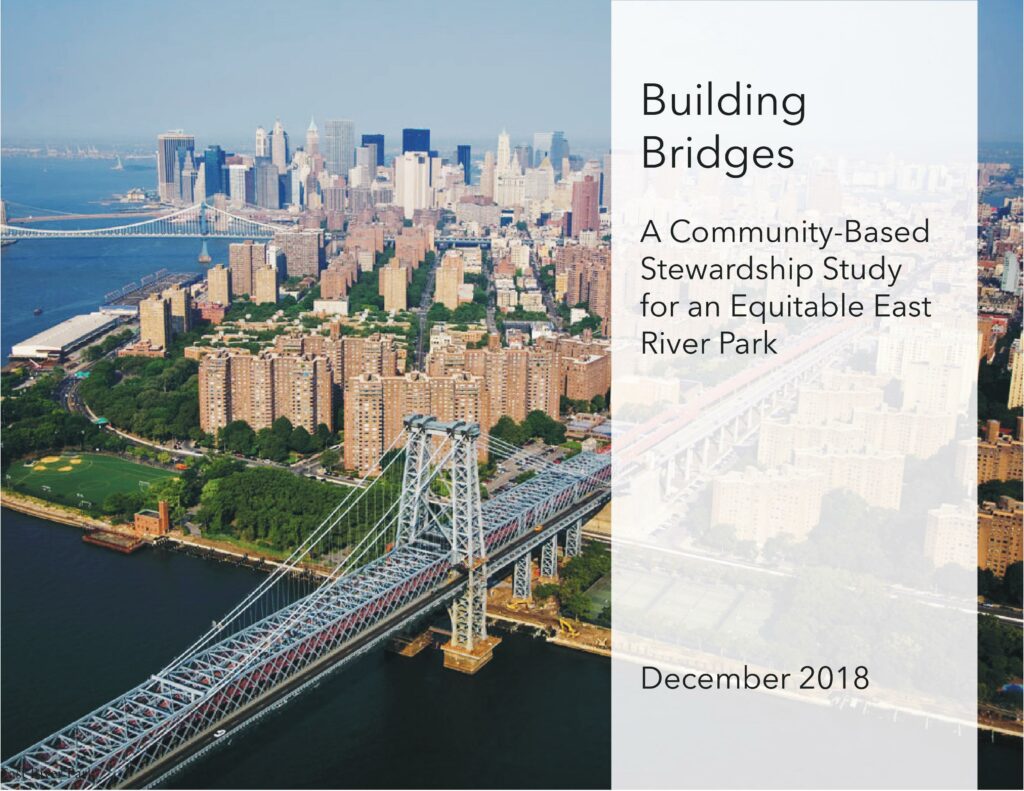The long-term maintenance of parks is a challenge in New York City, just as in many other cities around the world. To address shortages in funding and opportunities for enhancements, New York City has a history of employing the “Conservancy” model, which typically takes the form of a non-profit institution that contracts with the NYC Parks Department to operate certain parks and open spaces. This formula has led to beloved new recreational spaces such as Brooklyn Bridge Park, Governors Island, and the Highline, and sustains older spaces such as Central Park, and the Bronx Zoo, through capture of revenue and through fundraising of private and philanthropic donations to maintain the parks. While effective in maintaining quality open space, these models, often in practice and as perceived by local communities, have removed accountability and responsibilities from government, promoting exclusivity in uses, and containing amenities that may lack affordability to adjacent communities.
To respond to this challenge, Rebuild by Design and Good Old Lower East Side (GOLES) issued a Request for Proposals (RFP) in mid-July of 2018 to select a consultant team to write a report identifying precedent park stewardship structures that depart from the typical “conservancy” mode in New York City or the U.S., and make recommendations that would address equity in the park and funding mechanisms for long-term maintenance and operations for East River Park, the first funded section of the BIG U. It was requested that the recommended model be community-oriented and avoid or mitigate externalities that can arise from non-governmental stewardship models such as gentrification, privatization of park resources, and amenities that lack affordability.
With input from a group of neighborhood leaders, including representatives from community boards three and six, Rebuild by Design selected The Trust for Public Land and James Lima Planning + Development in September 2018 to prepare this parks stewardship study. The group of leaders who advised on the consultant selection morphed into a “study group” and were engaged and consulted throughout the process of researching and writing this report, setting the goals for the report, ensuring the research was comprehensive and ultimately will facilitate a larger community dialogue to determine whether the recommendations should be implemented.
Rebuild hopes that the community will find the recommendations in this report useful, and that East River Park will have a equitable stewardship structure that the community can celebrate. READ THE REPORT HERE>>
